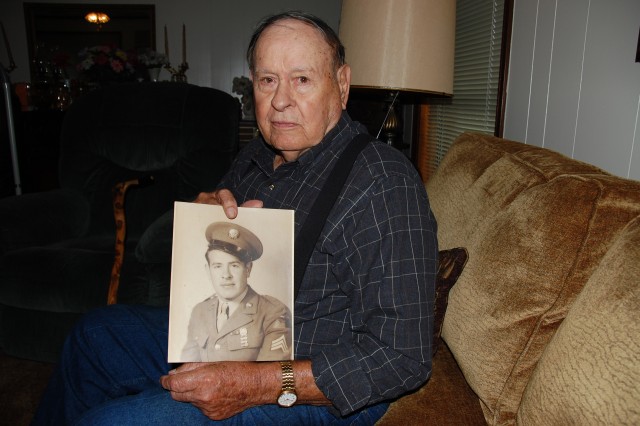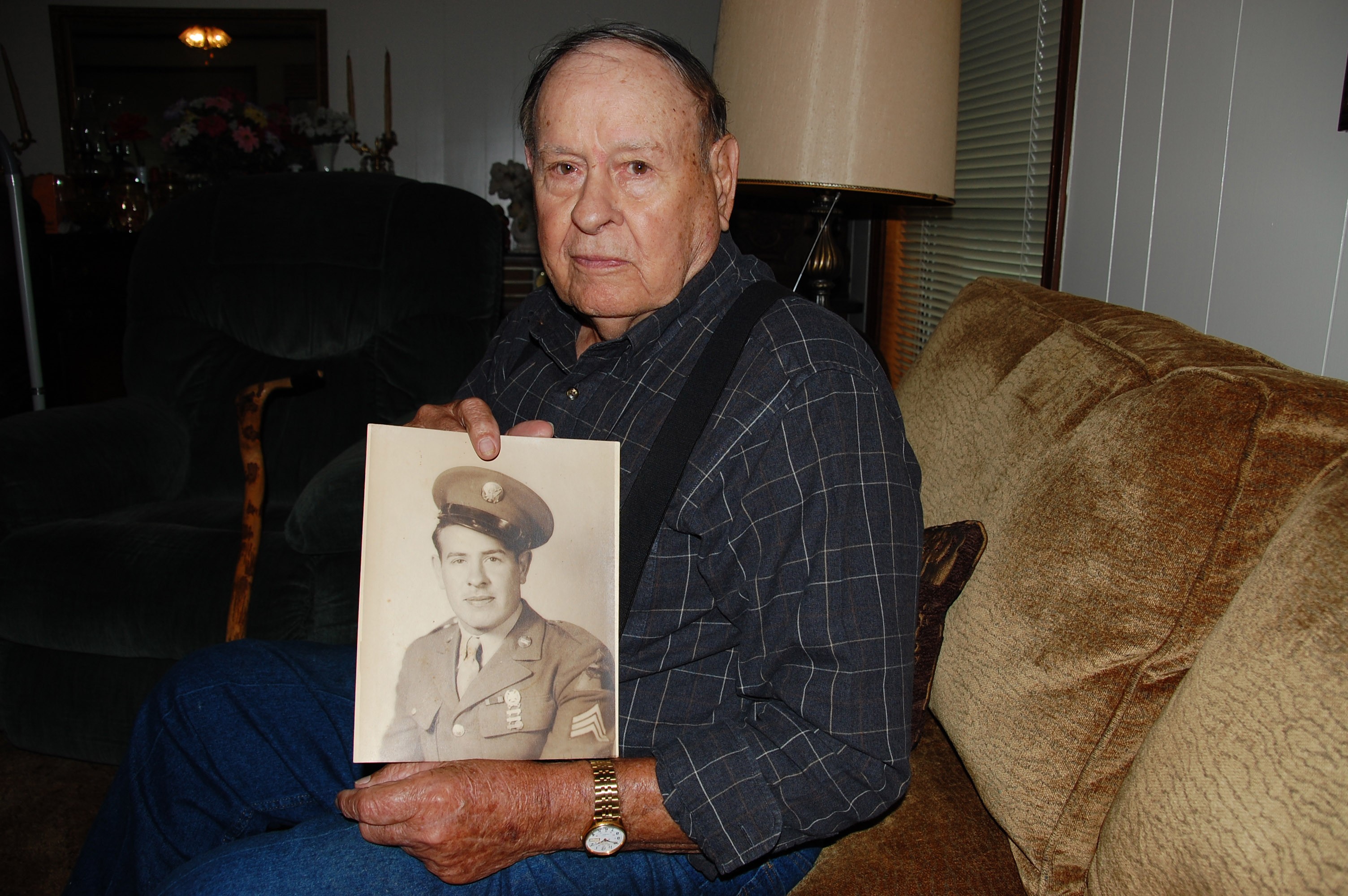Growing up in the rolling farmland just south of DeRidder, Louisiana, in the wake of the Great Depression was tough. Just ask Lawrence Lacy.
"There were no jobs around here at all," Lacy said. "No factories, no paper mills, no work anywhere."
Lacy said that's why he joined the Army.
"I had a high draft number and decided I'd go ahead and join up," he said. "There was certainly nothing around here."
Yet "around here" is exactly where Lacy, who turns 89 Tuesday, wound up before shipping out to England. Lacy joined the Army Aug. 17, 1940, and after finishing basic training and armor training at Fort Benning, Ga., Sgt. Lawrence Lacy would be in the first wave of Soldiers who called Camp Polk, Louisiana, home in 1941.
"When we first arrived in 1941 we stayed in tents for about three months outside of Alexandria," Lacy said. "They were still finishing up construction at Camp Polk."
During those three months in Alexandria, and then during his stay at Camp Polk, Lacy said most of his time was spent doing one thing - training for D-Day.
"The armor units were really expanding and the Army decided that this was a good place to prepare for an eventual move to Europe," Lacy said. "We spent a lot of time conducting maneuvers all around this area. That's about all we did before we moved out to England to get ready for the invasion of Normandy."
Lacy said Leesville, Louisiana, about seven miles from Camp Polk, was "a pretty wild place" during the early years of the camp's existence. At one time there were three divisions assigned to the post preparing for war.
"Like I said, there were no jobs around here, and with so many Soldiers in the area, the night life became the main industry," Lacy said. "In fact, the biggest concern among the commanders at Camp Polk was the spread of venereal disease among Soldiers."
For nearly three years, Lacy called Camp Polk home as he and fellow Soldiers prepared for an invasion that would ultimately lead to the end of World War II. He said the training was often too life-like.
"We had quite a few Soldiers killed during training," Lacy said. "We trained hard because we knew the fighting in Europe would be tough. And any time you're training with armor there's always the chance that someone could get hurt."
When Lacy's unit deployed to England, the training continued.
"We were constantly conducting maneuvers, getting ready for the invasion," he said.
That day finally came on June 6, 1944.
"We were on boats off the English coast when the invasion began," Lacy said. "We were supposed to go in pretty early, but they were having trouble at Normandy, so we didn't get in until D+3 (June 9, three days after D-Day)."
Lacy said he has vivid memories of the day his unit hit the Normandy beaches.
"Dead Soldiers were stacked like cordwood," he said. "You could tell the fighting had been fierce. You also knew you would probably face the same fierce fighting once you cleared the beach. It was very sobering."
Lacy said his unit faced its share of fighting as it fought its way inland, then across France and Germany until the war ended.
"I lost a lot of good friends, guys I could count on," Lacy said, his eyes welling with tears as the memories of war returned. "I was very lucky. Any number of times it could have been me, but I was one corner or one building away."
While many of his memories of the five-plus years he spent as a Soldier concerned World War II, Lacy said there were lighter moments, especially during a two-week period of time at Fort Benning.
"General Patton was at Fort Benning helping to expand the armor program," Lacy said. "His driver had to go on emergency leave for a couple of weeks and I was assigned to replace him."
Lacy said the stories about how Patton was tough on Soldiers are true.
"He was especially tough on officers," Lacy said. "I saw him really get after the Soldiers under him. But he was very nice to me."
There was even one occasion when Lacy shared a bite with Patton - and the general's wife.
"I had taken Mrs. Patton somewhere," Lacy said. "When I brought her home, she said, 'Don't go anywhere young man. I want you to come in and have a cup of coffee and a piece of cake with me and the general.'"
Being a gentleman, Lacy said he obliged.
"So I got to sit down at the table with one of the most famous generals in American history and have cake and coffee with him and his wife," Lacy said. "That was pretty neat."
Lacy said he thinks about his time as a Soldier more these days, especially with War on Terror in both Iraq and Afghanistan in the news.
"During war, you see a lot of things that stay with you forever," Lacy said. "I think about our young men and women fighting today and pray for their safety and that they'll be able to handle what they see.
"I wish I hadn't seen what I saw, but, like today, I know it was necessary to keep our nation free and the world a safer place."


Social Sharing